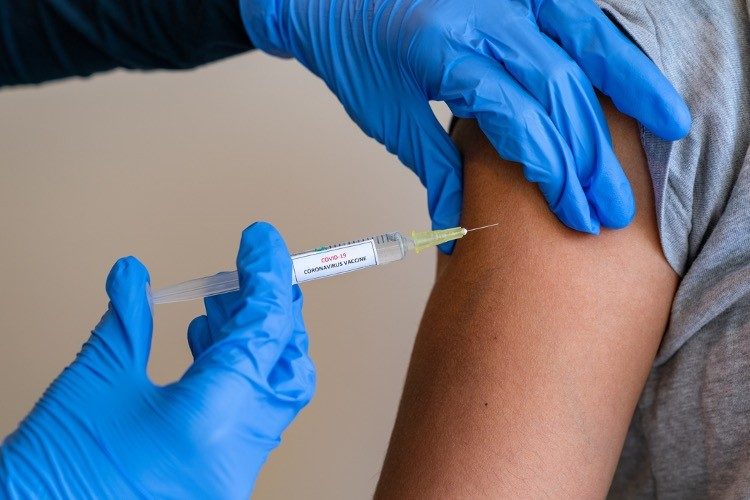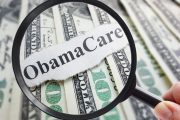
Enforcement of the COVID vaccine mandate for larger private businesses may start within days, and those employers who fail to force their workers to get experimental gene therapeutics or make sure they are tested for COVID on a weekly basis might be fined out of existence, and/or their workers receive much-shrunken paychecks.
According to a Labor Department spokesman’s statement published by CNN,
On November 1, the Office of Management and Budget [OMB] completed its regulatory review of the emergency temporary standard. The Federal Register will publish the emergency temporary standard in the coming days…. Covered employers must develop, implement, and enforce a mandatory COVID-19 vaccination policy, unless they adopt a policy requiring employees to choose either to get vaccinated or to undergo regular COVID-19 testing and wear a face covering at work. The ETS also requires employers to provide paid time to workers to get vaccinated and paid sick leave to recover from any side effects.
The department’s officials have added the standard was a “minimum” and that some companies may choose to “go further,” including by mandating the vaccine with no option for weekly testing, per CNN.
The specifics of the upcoming rule are still unknown, but the ETS is expected to be published later this week.
The Emergency Temporary Standard, or ETS, was developed by the Labor Department’s Occupational Safety and Health Administration (OSHA) at the request of President Joe Biden and submitted for review on October 12.
Once OMB completes review and the ETS is published in the Federal Register, the rule that applies to companies that hire 100 or more employees, would immediately come into effect for two-thirds of the American workforce, or 80 million people.
The requirement is arguably one of the Biden administration’s most authoritarian attempts to coerce unvaccinated Americans to get a COVID shot, and part of a broader strategy called “Path Out of the Pandemic: President Biden’s COVID-19 Action Plan” that the president presented on September 9. Back then, Biden tasked OSHA with drafting enforcement tools to exert emergency vaccine compliance authority over all companies with 100 or more employees, regardless of their industry.
In June, OSHA enacted an ETS to address the “grave danger” of COVID and make it a workplace hazard for healthcare employment, and stated that violation of vax mandates by healthcare companies would result in $13,653 fine per each unvaxxed staffer, “regardless of the scope of the hazard.” The fines, however, may jump to $70,000 for “serious violations,” and $700,000 for “willful or repeated violations” of the new requirements, if the so-called reconciliation budget with the provisions on “adjustment of civil penalties” is passed by the Congress.
According to a report by Bloomberg Law, the new rule could also have financial consequences for unvaccinated employees, which are likely to be required to cover the costs of masking and weekly testing. Employers, however, will be required to absorb those expenses when a worker qualifies for a vaccine exemption, and companies could also be ordered to pay for testing costs if subject to a union bargaining agreement, per the report.
In a separate article, Bloomberg quoted Jordan Barab, a former OHSA official, who called a provision that would allow shifting the financial burden onto unvaccinated employees a “really bad precedent.” “OSHA’s always had a firm policy that employers pay for all required tests and equipment,” with minor exceptions for work boots, Barab said. “This would be totally unprecedented and therefore set a bad standard for future OSHA requirements.”
Earlier this year, the U.S. Equal Employment Opportunity Commission and Department of Justice both officially claimed that vaccine mandates — even for those shots that are authorized for emergency use only and are experimental by definition — are legal subject to exceptions for employees who object due to certain medical conditions and religious beliefs.
The upcoming rule, however, will likely be met with a slew of legal challenges.
In a September 16 letter to the president, nearly every GOP state attorney general announced their intent to sue the administration if the mandate is implemented, calling it “illegal,” “disastrous and counterproductive.” They argued that OSHA had no business regulating dangers “existing in the world generally,” such as COVID, but only those specific to the workplace. In a likely event of court battles, the effective date of the new rules could be delayed.
Some Republican-run states have sought to pass legislation to preempt or weaken the federal vaccine mandate.
The rule is also likely to be hindered since many larger companies, especially retailers, have voiced their concerns about imposing a vax mandate around the holiday season at a time when labor shortages and supply-chain disruptions are making routine operations a challenge. Some of them, such as the National Retail Federation (NRF), the world’s largest retail trade association; and Retail Industry Leaders Association (RILA) argued in a letter to Labor Secretary Marty Walsh that the requirements could compound labor shortages and suggested a 90-day implementation period to give businesses time to come into compliance.
On a separate note, it is worth mentioning that OSHA has recently updated its FAQ page to inform employers they are welcome not to report any vaccine-related injuries since the agency “does not wish to have any appearance of discouraging workers from receiving COVID-19 vaccination, and also does not wish to disincentivize employers’ vaccination efforts.”





